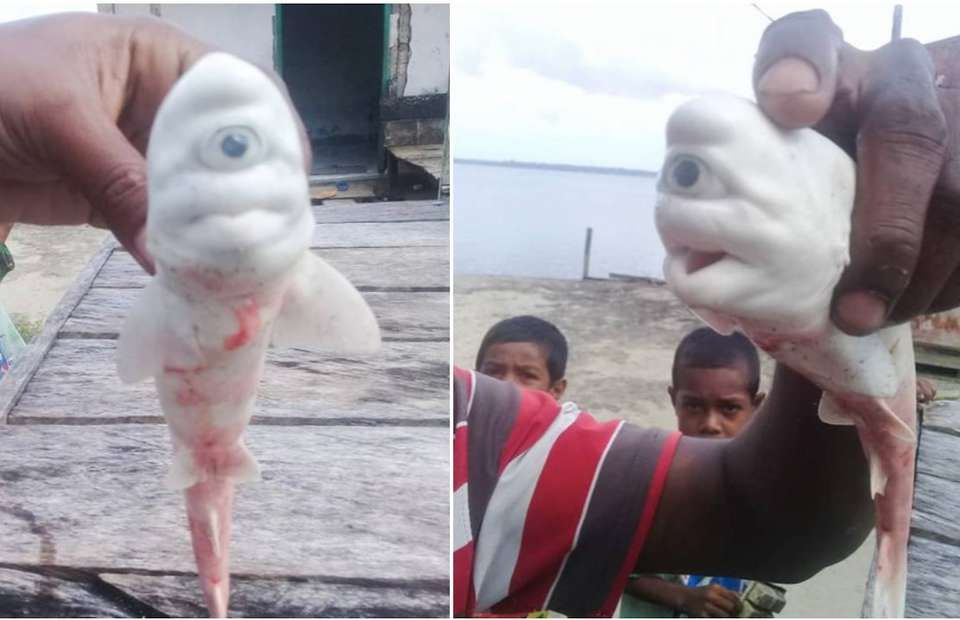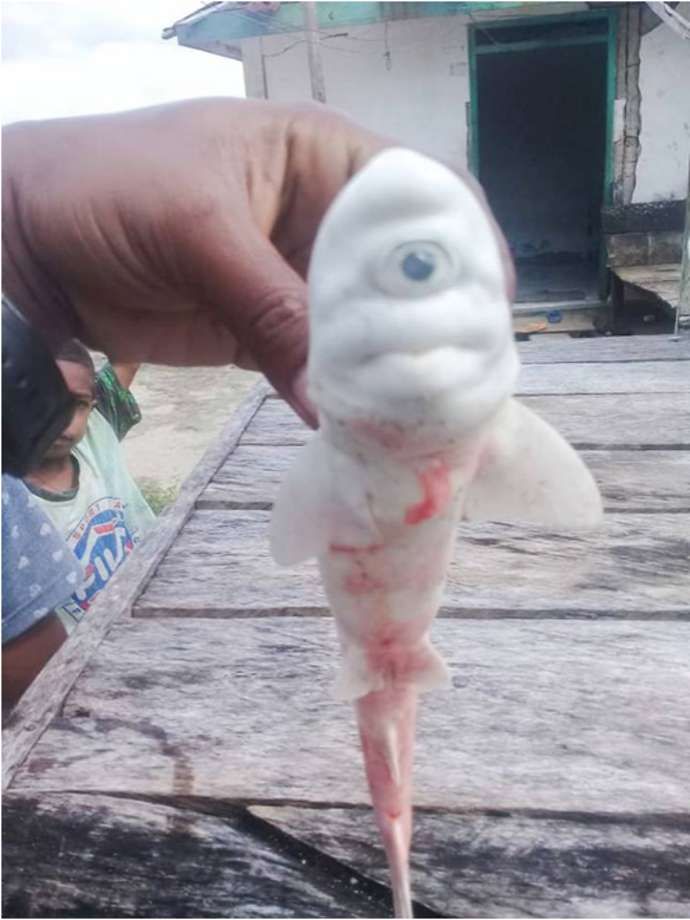Fishermen were given a shock when they found a rare one-eyed, albino shark in the belly of an adult animal.
The adult had died when it got caught in the nets of the fishermen as they were trawling across the Maluku province on October 10.
Three babies were found in the fully-grown specimen when the animal's gut was being cleaned, and one of the babies stood out for its exceptionally unique features; milky-white skin, and a single eye on the front of its head.
The young shark not only had albinism, a condition which results in a lack of melanin and therefore pigment, but also Cyclopia, a birth condition in which the embryo develops a singular eye.
Jack Gillespie came across a similar specimen when he was fishing off the coast of the Isle of Wight and caught an all-white school shark.
That animal, however, was leucistic as opposed to albino. The difference is primarily found in the colour of the eyes, the latter having reddish tinge whereas the former is strictly an absence of pigment from the skin.
"It's similar to an albino, but they have red eyes generally," said Gillespie.
"I think generally if they lose their colour they struggle to survive because they don't have the same camouflage and they can't hunt as effectively and they get picked up by predators.
"I caught it on Tuesday, off the Isle of Wight - what're the chances? I have no idea. It's the fish of a lifetime, one in a million.
"We released her as quick as possible, she was only on the boat for less than a minute."
There are some sharks which can change their colour relative to their habitat, such as the Dusky Smoothhound, while the pigment for most species depends on the depths they occupy.
There are also some which go through periods of 'whiting', like the Blacktip shark, which are blooms of shelled protozoans called coccolithophores.




















